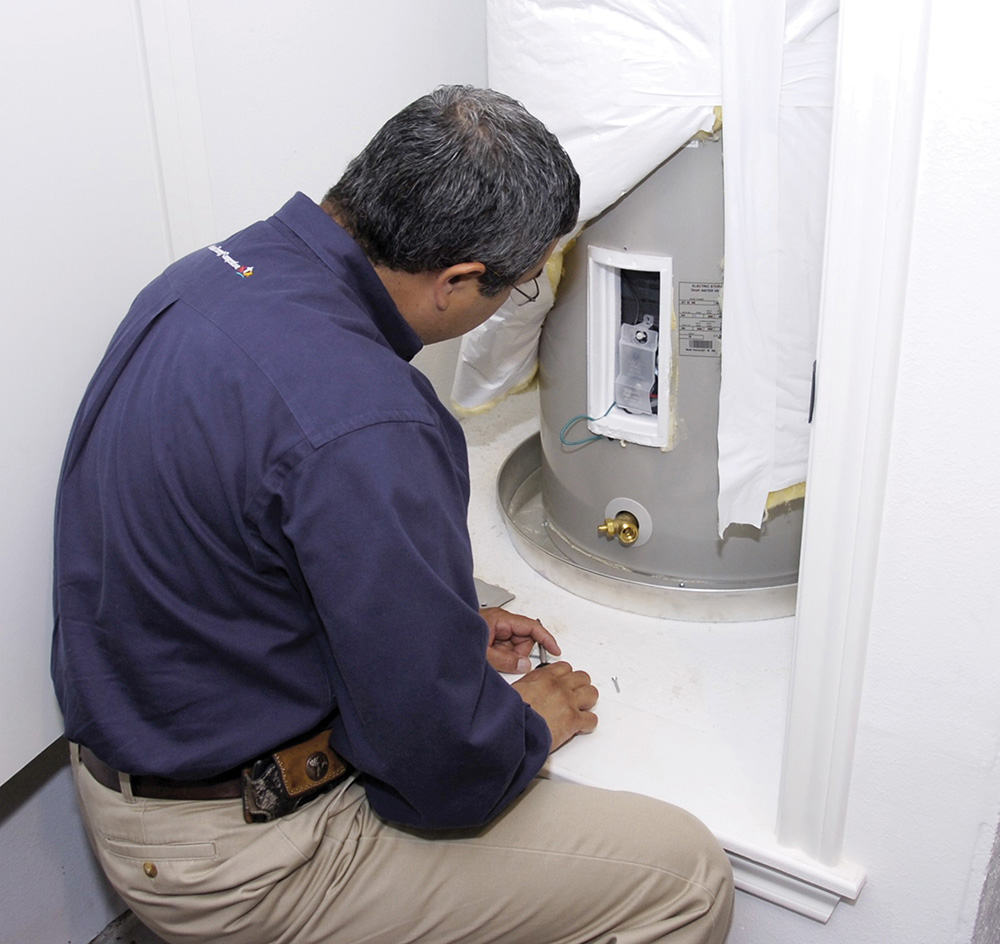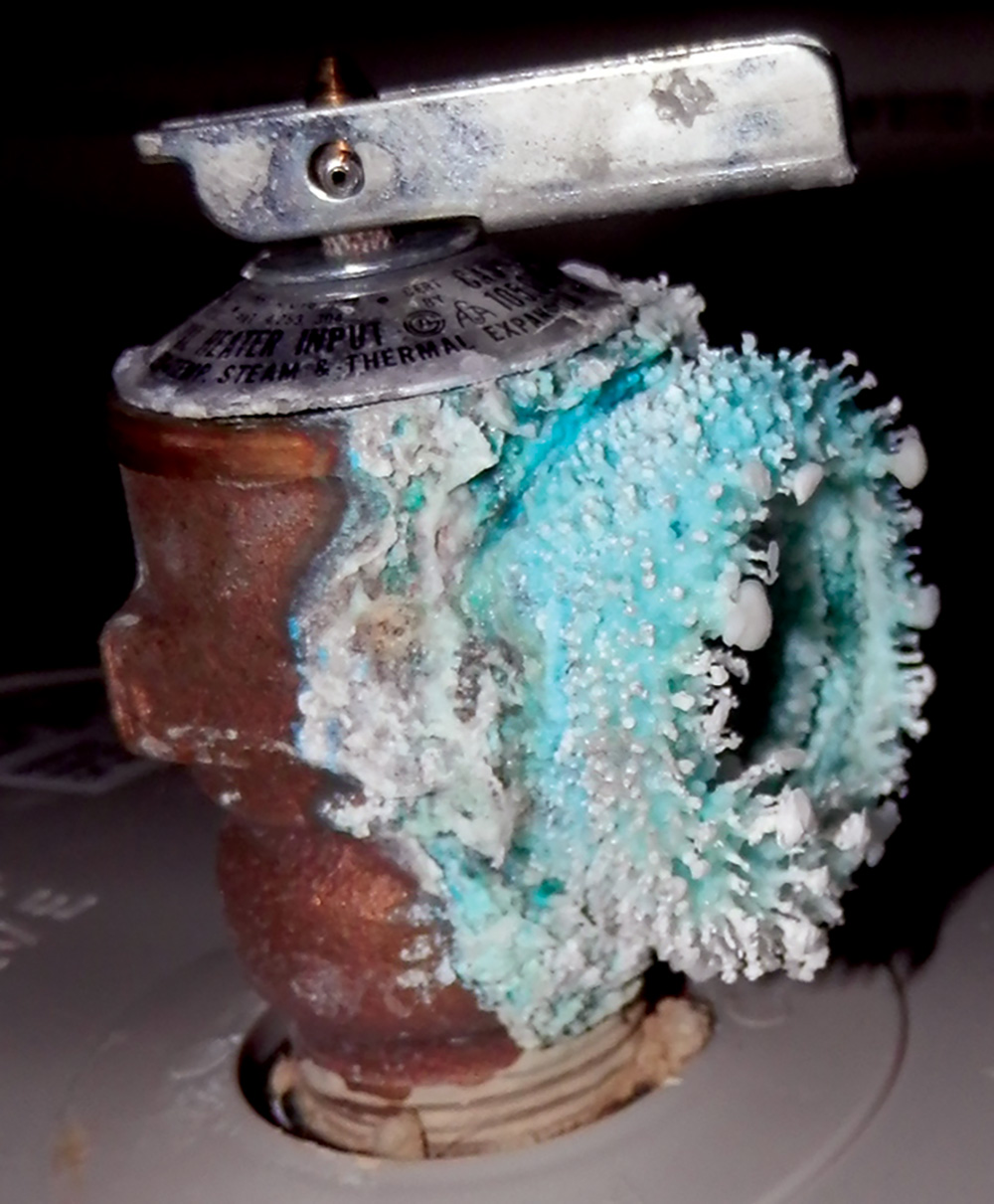Q: Our water heater is 15 years old. About how long should it last? Are there things I can do to maintain it and make it more efficient? Or should I just replace it?
It’s hard to say how long your water heater will last. Certified home inspectors estimate the life span to be about 10 years. Some manufacturers suggest 12 to 13 years, but I had a water tank that lasted more than 40 years before the heating element finally gave out. That said, it’s wise to replace a water heater before it fails because sometimes failure includes a ruptured tank or a massive leak that can do a lot of damage.

The life span of a conventional water heater (one with a tank) depends on factors such as the volume of water cycled through it, the hardness (mineral content) of the water and the tank’s interior coating. Many water heaters come with a warranty as long as 12 years. Presumably, a longer warranty indicates higher quality and the chances of longer life. These warranties usually only cover the cost of a replacement tank; they typically do not include the cost of labor to install it or the costs from flood damage if the tank fails.
There are a few warning signs that your water heater tank or heating element may be failing:
• Water leaking from the tank or pooling on the floor underneath it
• Rust, corrosion or mineral deposits around fittings or release valves
• The water temperature from your faucets is dropping
Most experts believe that an important water heater maintenance practice is to drain the tank every year or two. Allstate.com provides an excellent step-by-step guide. However, Ken Maleski, the residential energy advisor at Central Electric Cooperative in Pennsylvania, recommends that if your tank has not been drained in the past six to seven years, you should avoid doing so because draining could remove sediment in such a way that a leak could develop.

Here are a few simple steps you can take to increase the efficiency of your water heater:
• Insulate the first six to 10 feet of easily-accessed hot water line where it exits the tank.
• If the tank is warm to the touch or is in a cold location like your garage, consider insulating it with a heater blanket. But first, check the owner’s manual to make sure doing so won’t void the warranty. If you have a gas or propane water heater, be careful the blanket doesn’t block the unit’s air supply.
• Keep your water temperature to 120 degrees or less. This will help you save money on your heating bill and ensure longer life for pipes and gaskets.
• Keep safety in mind. If you have a gas or propane water heater, protect your family from the “silent killer” of carbon monoxide gas. Pick up a carbon monoxide detector from the hardware store and install it near the heater.
When it’s time to purchase a new water heater, there are many options available. Be sure to check with your electric co-op. Some co-ops offer rebates on energy efficient models. Others offer incentives for water heaters with large tanks or to install a switch that can be triggered remotely to turn the water heater off for brief periods of high energy demand. Last but not least, check out Energy.gov’s excellent article on selecting a new water heater.
Patrick Keegan writes on consumer and cooperative affairs for the National Rural Electric Cooperative Association, the Arlington, Va.-based service arm of the nation’s 900-plus consumer-owned, not-for-profit electric cooperatives. Write to [email protected] for more information.




